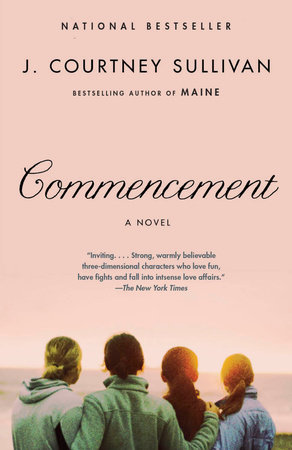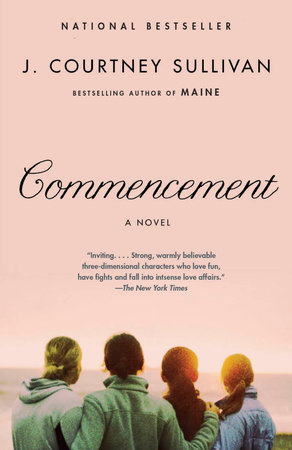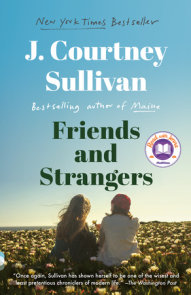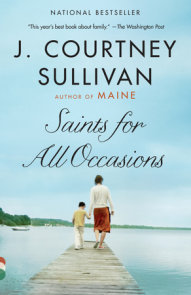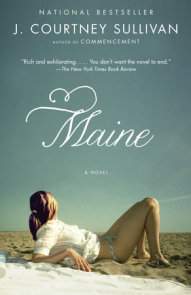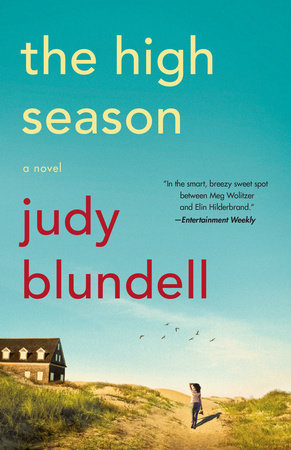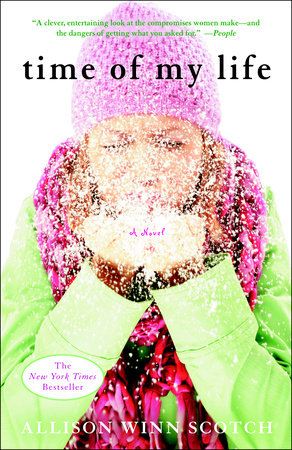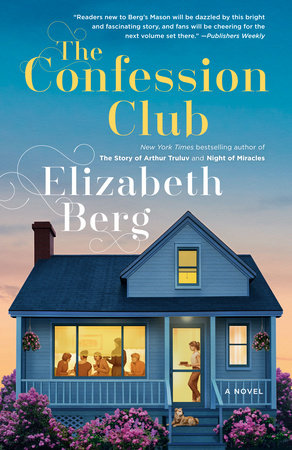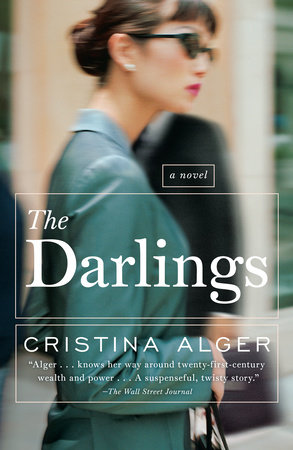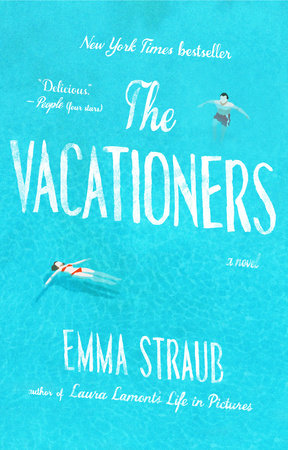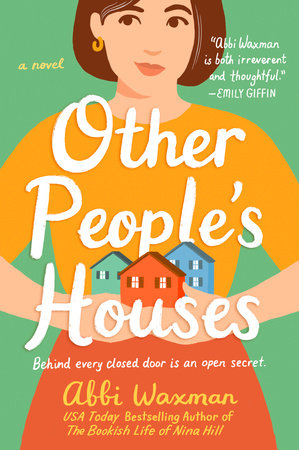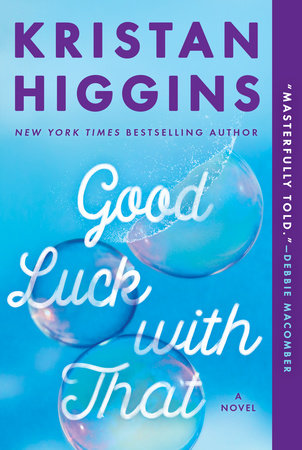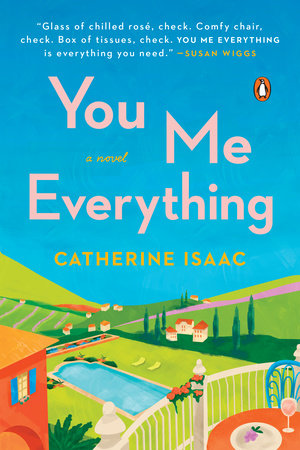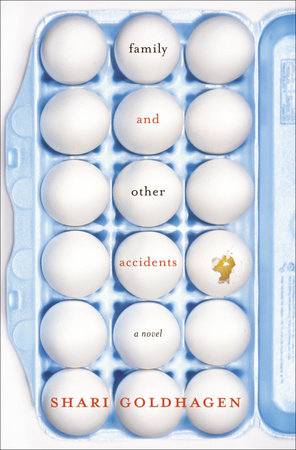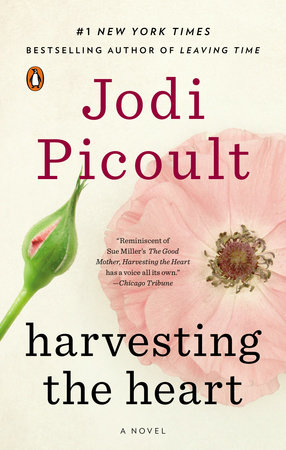Author Q&A
Q: One of COMMENCEMENT’s protagonists, Celia Donnelly, is an Irish girl from Milton, MA, who moves to New York after graduation. You’re an Irish girl from Milton who moved to New York after graduation. Is Celia—or any of the characters—modeled after you?
A: For the most part, every character in COMMENCEMENT—Celia very much included—is made up of material that’s about ten percent borrowed from real life, and ninety percent pure fiction. There are definitely a lot of similarities between me and Celia: we live in the same neighborhood in Brooklyn, our upbringings were similar, we sort of look alike, and as children we both took embarrassing Irish step dancing classes that left us completely unable to dance like normal people. But Celia is much more of a wild child than I ever was. She’s fairly apolitical, while I am obsessed with politics and women’s issues. Politically, I am most aligned with April. And I guess there’s a bit of me in Sally, too—I am a total neat freak, and have even been known to wash my keys in soapy water now and again, as Sally does. (Think of how dirty they get!) There are small similarities between me and every one of my characters: I share Bill’s love of W.H. Auden and Bree’s love of Dolly Parton. But then again, part of the fun of writing a novel is living vicariously: Last year, when I desperately wanted to get a dog, I gave one to Celia instead. She has a closet full of fabulous designer clothes, while I have six black sweaters with varying necklines.
Q: In the same vein, are any of the characters based on your friends?
A: When I was a student at Smith, I met some of the most incredible women in the world. Many of them are still my best friends today, and since I’d like to keep it that way, there are no one-to-one ratios in the book. A high school teacher of mine once said that a normal person would see a man in a yellow raincoat get splashed by passing traffic, and a moment later move on to the next thing, the image gone forever. But a writer would store that image (and a million others like it) away and find a way to use it someday, sort of like a bird making a nest. Certainly, some moments and traits and exchanges from my Smith days have made it onto the page: The Mahjong played around Lara’s Christmas table is totally stolen from a holiday spent in London with my friend Karin’s family. Jenna the Monster Truck Collins is definitely based on someone real. (You know who you are.) And some of the broader story lines were drawn from life. The problem is, once you’ve published a novel, this little secret about the nest-making is most definitely out, and you go from years of quietly collecting other people’s stories to phone discussions with dear friends that begin: “I have something amazing to tell you, but I better not see it in one of your books.”
Q: What are your thoughts on single-sex education?
A: Smith College made me who I am today. After the first semester, I wanted out—I was desperate to transfer to any place that would have me (any place that would have me and had boys, that is.) Six months later, I was so in love with Smith, I never wanted to leave. There is, of course, an entire body of research dedicated to the idea that women excel in a single-sex academic environment. (And, no doubt, a body of research dedicated to the reverse theory.) I only know that for me personally, there could have been no better match than Smith: My professors were inspiring and accessible, my friendships were intense and important, and I got hooked into an Old Girls Network that still benefits me personally and professionally to this day. So to any young thing considering Smith, all I can say is that if my experience is any indication, go to a women’s college: You will learn as much as you can, laugh just as much, eat even more. At times you will think you’re going insane. You’ll wonder how you can possibly survive with so much estrogen in the air. And then it will all be over, and you’ll look back, and say, “That was the time of my life.”
Q: Do you think COMMENCEMENT presents an accurate description of Smith College?
A: COMMENCEMENT is a work of fiction that uses a real place as its backdrop, and that can be a tricky thing because it raises questions like—well, like the one you just asked. While I was writing, some people suggested that I change the school to a fictitious women’s college, but that seemed like a bad idea to me. I wanted it to be Smith, because the Seven Sisters are so distinctive and have a rich history that can’t be conveyed by calling the place Jones Women’s College, or some other made-up name. That said, there were 600 women in my graduating class, and from them you will hear at least 600 varying Smith stories. If there’s one thing I know for sure about Smithies, it’s that no two are exactly alike and there’s really no such thing as an accurate description of Smith. (Leaving aside what I just said, this answer is totally Smith.)
Q: In your novel the character Sally becomes involved with a professor. Do you think student/teacher relationships are more common at women’s colleges? Or is that a myth of the old days?
A: Definitely a myth of the old days. Does it happen here and there? Sure. But most Smith professors are not shacking up with their students. I actually feel slightly bad about Bill’s portrayal, because the vast majority of my Smith professors were men, and all of them were extremely decent, thoughtful, genuine teachers, who cared deeply about shaping young minds and never made an improper move, ever. Bill is certainly not indicative of Smith professors. In a way, I think the relationship between Sally and Bill is less about the student/teacher dynamic and more about that sort of romantic relationship many of us have when we’re young: There’s passion and poetry and madness and mayhem and hot sex on a sheepskin rug, and once it all explodes, you find someone stable and steady, who hasn’t read any poetry since Dr. Seuss, but would gladly make you a grilled cheese sandwich any time you asked.
Q: This book has a strong feminist message. What are you hoping your readers will take away from this?
A: My love affair with the work of writers like Catherine MacKinnon, Gloria Steinem, Susan Faludi, and Virginia Woolf inspired the more overtly feminist parts of the book. Additionally, April’s research on the trafficking of minors and sexual discrimination in the military is based on extensive interviews I did both in college and as a researcher at the New York Times. April’s experiences with the sexual exploitation of minors are, sadly, far from fictional. There were several moments during the editing process when my editor asked, “Isn’t this a bit over the top?” or “Would the police actually allow a pimp to get away with this?” Unfortunately, everything April encounters in Atlanta is based on real events. But I certainly didn’t set out to write a book about feminism, per se. I wanted to tell a story about the first generation of American women to have all the choices in the world laid out before them; a gift that is wholly incredible and a little bit terrifying. I was about the same age as the women in the book while I was writing it, and I watched my girlfriends struggling with choices: Who to love. How to work. Where to begin. The more everyday stuff in the book—from changing (or not changing) maiden names, to going Dutch on dates, to having grown up with working vs. nonworking mothers—speaks to the lives of the young women I know, myself very much included.
Q: Do you think all of your protagonists in COMMENCEMENT are feminists?
A: I am intrigued and often aggravated by the fact that so many young women view feminism as unnecessary, negative, or somehow passé, even as they embody what it means to be a feminist. (Take, for example, Bree.) For those of us who do choose to strongly identify as feminists, there’s sometimes a degree of confusion (or worse, infighting), because there are a million different ways to be a feminist, and we can’t always seem to agree on who’s doing it right. I wanted to explore this in the divide between Sally and April’s versions of feminism. (And to a lesser extent, Celia’s. She calls herself a feminist, but in a more vaguely defined way than the others.) The movement is an amazing and powerful thing, but in some ways it is comprised of many smaller movements, missions, and ideas. It’s not a packaged set of values, which is what makes it both amazing and frustrating.
Q: You’re a young woman making it in the world of journalism. What advice would you give other young women starting out their careers?
A: Six years ago, right after my college graduation, I arrived in New York City very well versed in Victorian literature, but rather clueless when it came to my ultimate goal: How to become a writer. It seemed like an impossible task, even though every newsstand in Manhattan was overflowing with bylines—hundreds of them, thousands even. People were getting paid to write! But how? I asked a friend who was also just starting out, but slightly ahead of me. She had published a few pieces here and there, and was much less of a fraidy-cat (let’s bring that term back, shall we?) than I. Her take was, “What’s the big mystery? Editors need ideas. Young people are overflowing with ideas. Therefore, editors want young people.” So, the first step if you want to be a writer, is say it loud, say it proud, and don’t be afraid of it. My first job was working as an assistant at Allure magazine, and that was a great opportunity because it allowed me to write small pieces and get my first bylines. If you’re not working at a publication already, pitch ideas (lots of them) to smaller newspapers and magazines. If you’re still a student, you must write for the school paper! (I didn’t, but you must!) The websites of major magazines are also a great place to start—they need content, and they are open to newer writers. If you don’t know any editors personally, pitch to the names you see on a masthead. If you’re lucky enough to get an email response—even a rejection—pitch to that person again, or ask them for advice. Sure, some people are too busy, but they’ve all been where you are, and a surprising number are very generous with their time and Rolodexes. Those first few clips are the toughest to get, but once you do, you’ll be amazed at how quickly other opportunities arise. Last thing: Learn to roll with rejection—laugh at it, mock it, decoupage your coffee table with “Thanks, but no thanks” letters. The writers I know who have made it the farthest all have talent, of course, but more importantly they have determination and grit.
Q: What are you working on now?
A: I am working on two new books. The first originated in research I was doing for COMMENCEMENT. I was stuck on a passage about Sally’s feminist awakening (for lack of a less grandiose term—“feminist awakening” sort of makes it seem like choirs of Rosie the Riveter angels descended, but anyway.) I emailed some young feminist friends I admire to ask if there had been a moment, a person, a book, an event that had caused them to join the movement. One of those friends was the fabulous Courtney E. Martin from Feministing.com. This led to a larger discussion between the two of us, and we are now co-editing an anthology about feminist “click moments.” We have some amazing contributors lined up, including Jessica Valenti, Curtis Sittenfeld, Rebecca Traister, and Meghan Daum. The second book is a novel about a big, dysfunctional New England family and their last summer at the family beach house.The characters range in age from 30 to 83, so it’s definitely a new kind of challenge for me. On page one, I was proud of myself for realizing that a grandmother says “slacks” rather than pants, but making that sort of distinction last for 400 pages is a work-out when you’re used to writing exclusively in the voices of twenty-six-year-olds.
Q: Okay, last question. What’s your favorite college memory?
A: As everyone says when asked this sort of question, I can’t pick just one! At least for me and my closest Smith friends, there wasn’t a whole heck of a lot of glamour in our days there, and that’s the way we liked it. We certainly had our share of formal events and late nights spent partying on other campuses, but my fondest memories are the little ones that made up so much of our everyday college lives. The bulk of our thrills came from time spent doing dorky things, like drinking homemade sangria in the hallway, and singing country music until our voices were hoarse; sledding down frozen hills on baking sheets from the dining hall; and cuddling up in a friend’s bed, talking into the wee hours, then walking across the hall to your room, dialing that same friend’s extension and talking some more.
